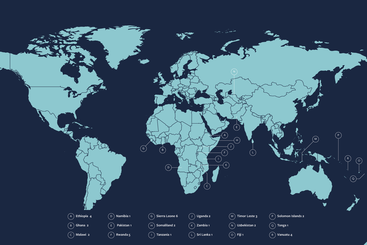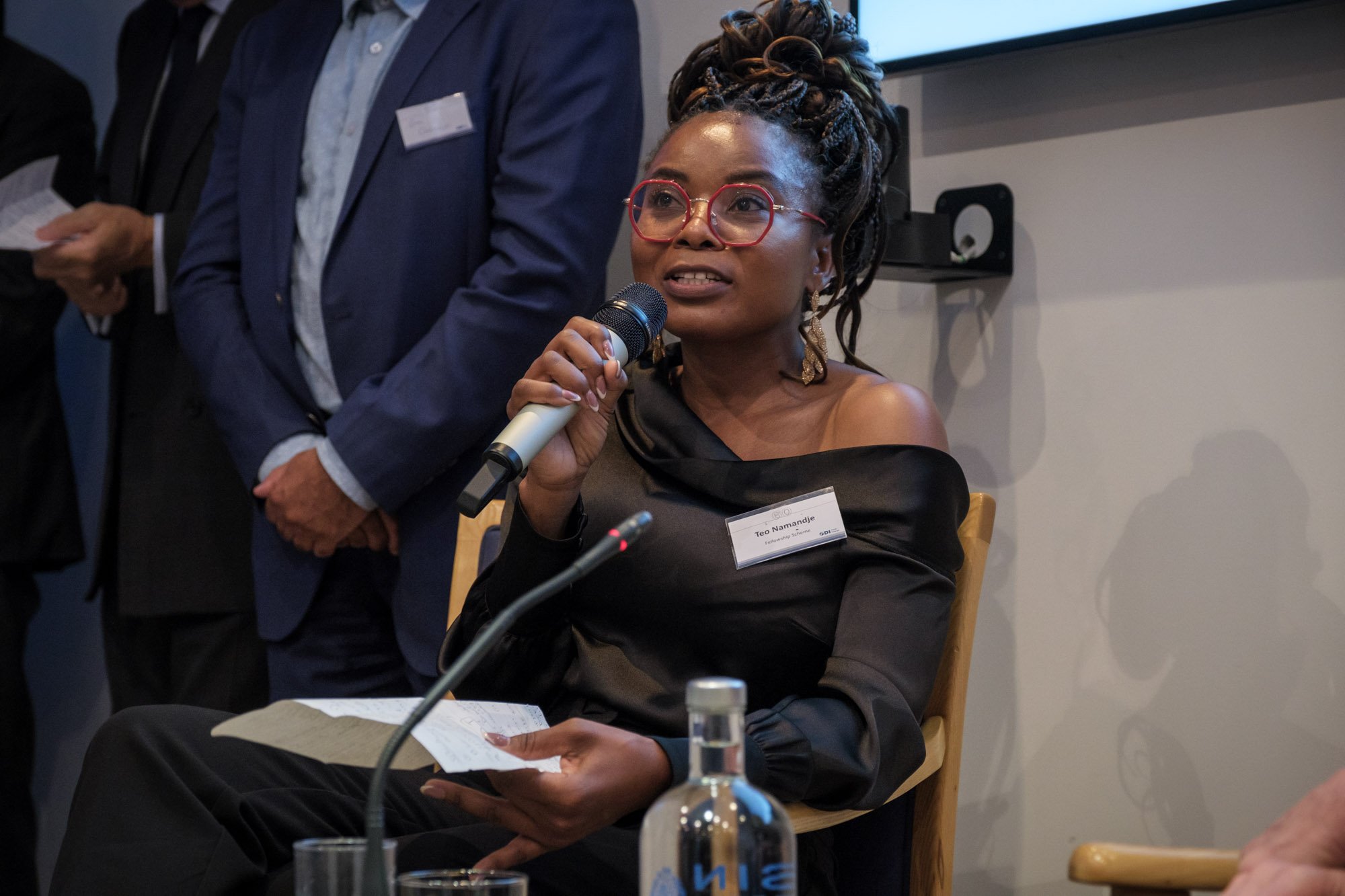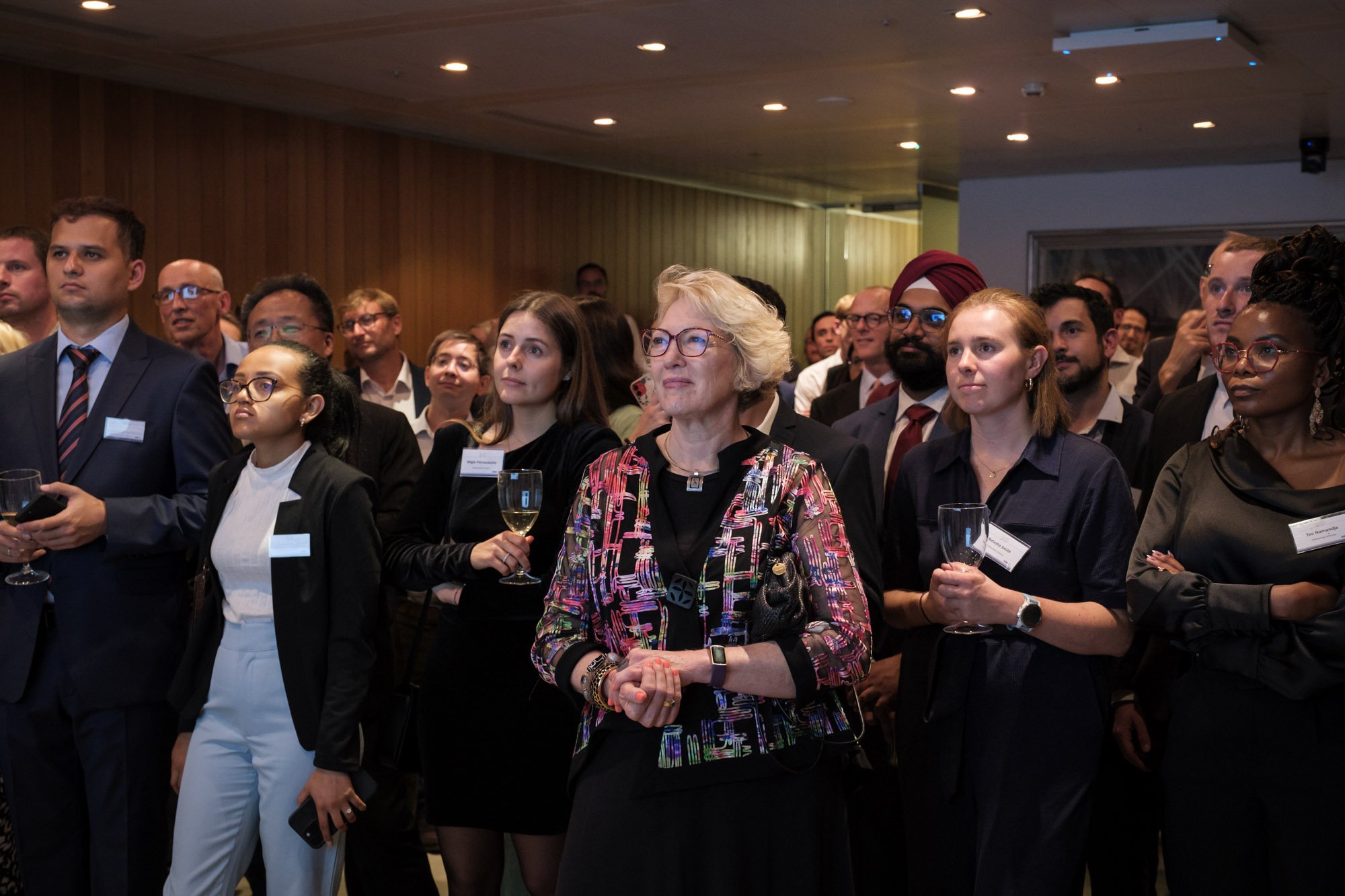For 60 years, the ODI Fellowship Scheme has taken bright-eyed and brilliant young professionals, traditionally economists and statisticians but increasingly from other domains, and placed them in public sector agencies in low- and middle-income countries.
It is a storied programme – one that has been formative for Members of Parliament, titans of development finance, esteemed professors, corporate giants, and more. Yet, when I joined ODI one year ago as Director of Global Advisory, with the Fellowship Scheme under my remit, I had never heard of it. Blasphemy!
The easiest scapegoat: my nationality. I’m American. (Exceptional in my ignorance in this case.) Still, I have a background in global development. I worked on an international fellowship programme early in my career; I could have been a decent Fellow myself! No, there is another reason… something I’ve discovered recently… it’s a rather British sensibility of excessive humility, especially when it’s not due.
60 years, 1,300 Fellows, nearly 50 institutions
Since its establishment, over 1,300 ODI Fellows have been embedded in nearly 50 institutions in Africa, Asia, the Caribbean, the Pacific, and the Western Balkans. From Sierra Leone to the Solomon Islands, Guyana to Ghana, fellowship postings originate from our government partners. Their needs have justifiably evolved over the years.
Back in 1963, when Kenya gained its independence from Britain, the first Fellows to the country were undergraduates from Cambridge and Oxford, engaged in activities designed to support fledgling government institutions. This perhaps sounds more substantial than it was, as Sir Vincent Cable, former Secretary of State for Business, Innovation and Skills, fondly recalls being the person needing to feed the parking meter on excursions. These days certain host institutions require Fellows to have knowledge of advanced computer programming languages to better build revenue models or analyse large datasets essential for informed policy-making. No matter the task, though, Fellows have a remarkable tendency to downplay their contributions. Fortunately, we have receipts! Fellows have:
- Assessed Fiji's largest ever merger control case and drafted merger assessment guidelines alongside a national competition policy.
- Developed the first Climate Action Plan for the city of Freetown in Sierra Leone.
- Established the technical consulting arm of the Namibia Nature Foundation to grow and develop new partnerships with the government and private companies.
- Conducted cost-benefit analyses on water health across three islands in the South Pacific.
- Helped improve the reliability of the poultry sector in Guyana.
- Built the first information system for public teachers in Guinea-Bissau, which helped to detect ghost teachers and personnel that had been receiving payments despite being deceased.
- Led an incubation platform for small- and medium-sized enterprises engaged in the honey sector in Ethiopia.
- Supported the introduction of a value added tax in Malawi and modelled the minimum threshold for paying it.
- Persuaded the Ministry of Health in Rwanda to reject donor funds for new hospitals and instead shift funding to improve existing health centres.
- Wrote a successful proposal that resulted in millions of dollars of support for a trans-frontier conservation project and eventually led to the creation of the Limpopo National Park in Mozambique.
- Launched a data portal for the Central Bank of Lesotho, the first of its kind, to make data publicly available for research.
- Assisted the Central Bank of Papua New Guinea to collaborate with major retailers to generate a monthly retail price index, contributing to better monetary policy.
- Crafted Uganda’s Domestic Revenue Mobilisation Strategy that has since been adopted by the government with an implementation unit in place.
Celebrating the 60th anniversary
So, on the occasion of its 60th birthday, the fellowship deserved a proper celebration. What better way to celebrate than with a party.
Over 200 current and former Fellows, ambassadors, and friends of the scheme gathered a few weeks ago to toast to the ODI Fellowship Scheme. Dr. Donald Kaberuka, Managing Director of Southbridge Group and former Chair of The Global Fund and President of the African Development Bank, flew into London the morning of the event from Kigali. In his eight years as Minister of Finance and Economic Planning in Rwanda, he managed 10 Fellows (one of whom was in the room!)
He joined Sir Suma Chakrabarti, Chair of the ODI Board of Trustees, and former President of the European Bank for Reconstruction and Development – a Fellow himself in Botswana in the early 1980s – for a conversation on the real value of Fellows, then and now.
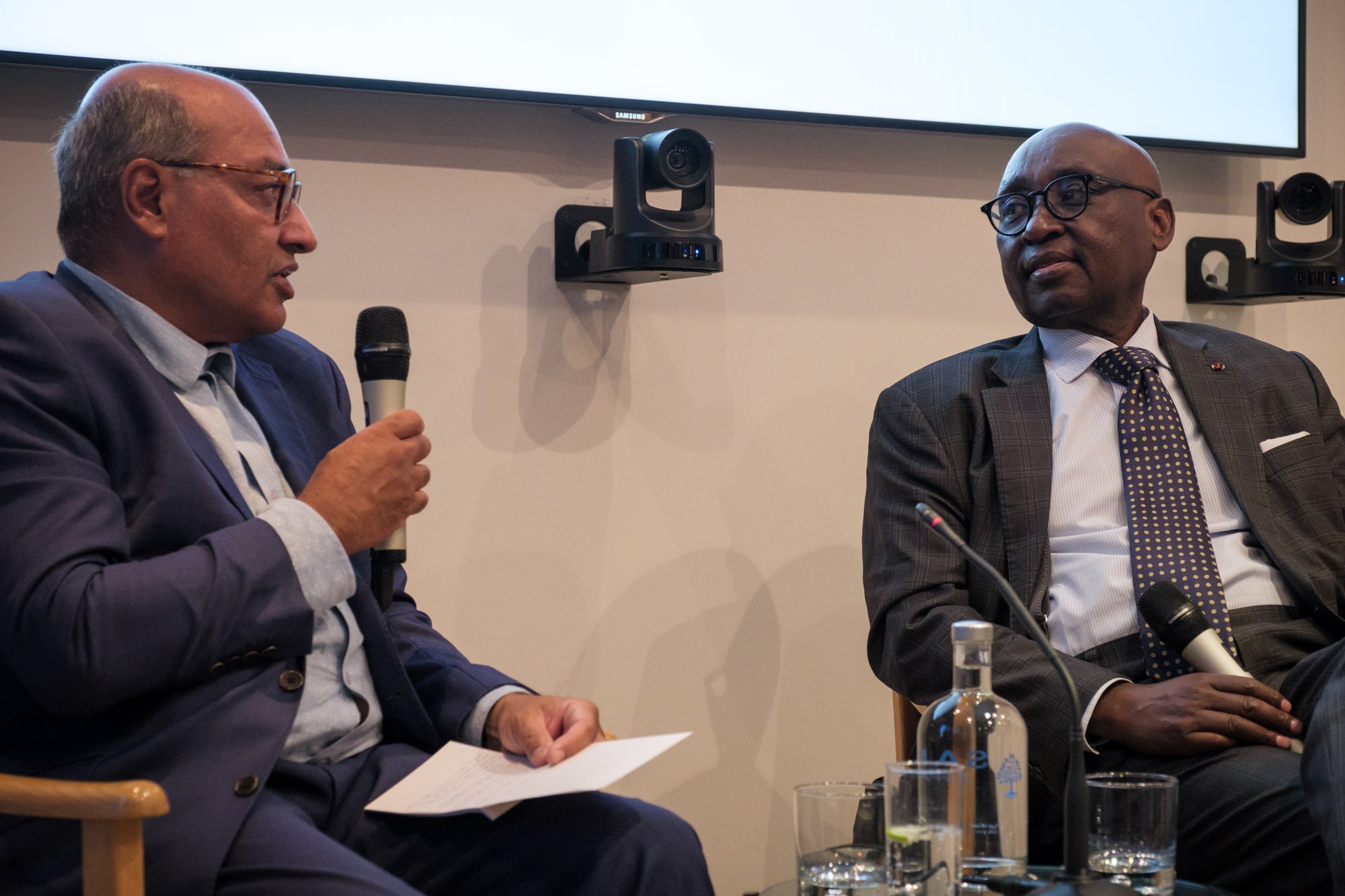
The Rt Hon Andrew Mitchell MP, Minister of State for Development and Africa, rued that he had never been a Fellow himself but proudly referenced a long list of peers and advisors who are and from whom he has learned a great deal.
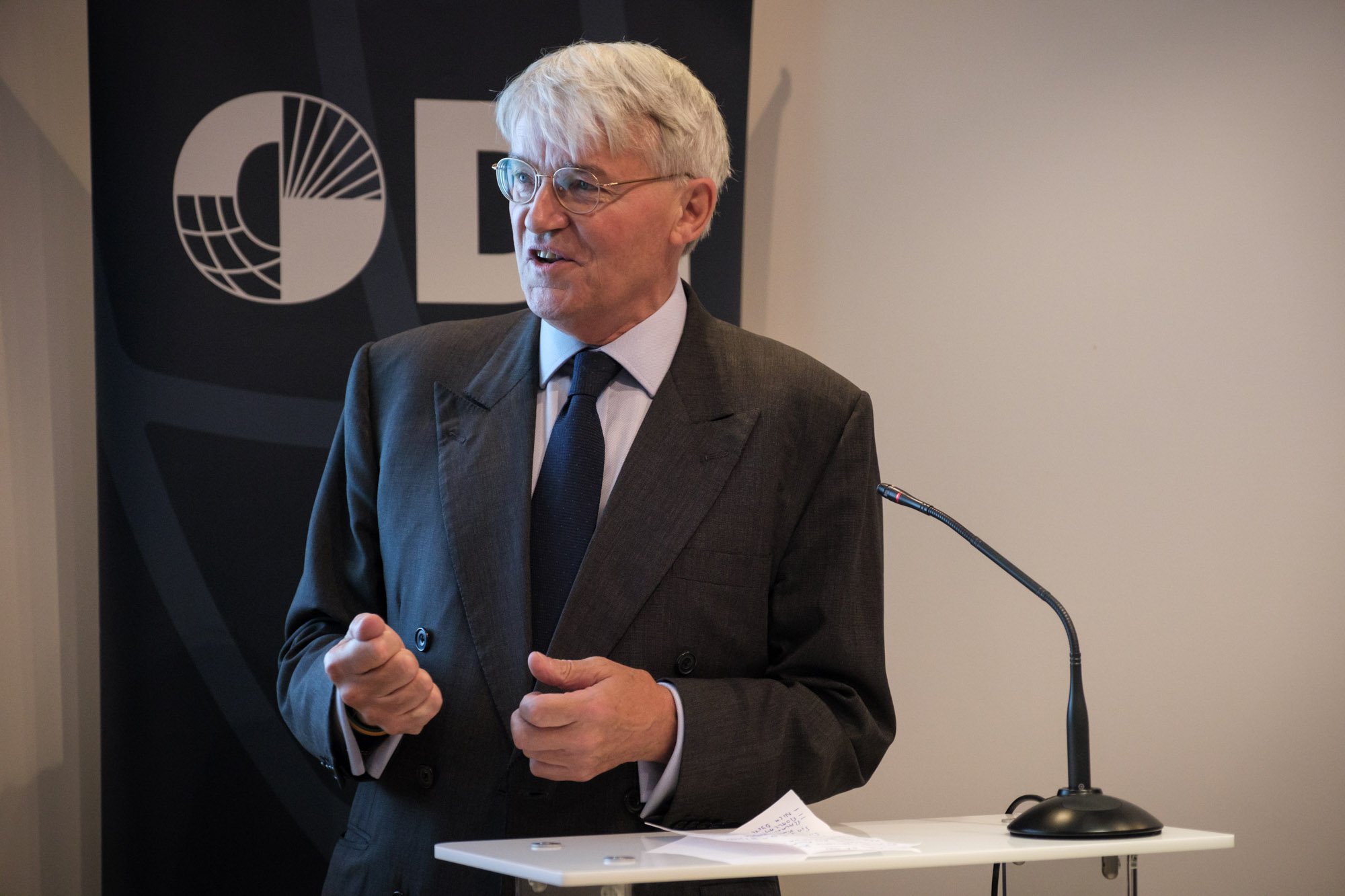
H.E. Linda Scott, High Commissioner of Namibia to the United Kingdom and Northern Ireland, shared a woven tapestry of the fellowship with the independence of her country. Seated next to her was Teo Namandje, our second Fellow from Namibia, a Senior Transport Economist with the Roads Authority who will soon begin a role at the Ministry of Health in Sierra Leone.
The mood in the room was a curious mix between delight and contemplation. The Fellowship Scheme is a life-changing experience, personally and professionally. We know of at least four marriages between Fellows, and many many more life partners found in countries of posting. Fellows encounter their fair share of difficulties – challenging work environments, loneliness, anguish about the future, illness, steep learning curves around culture… the experience teaches one a lot about oneself. How to persevere, find joy, manage. It also underscores the need for connection. Fellows lend their skills and their eagerness to contribute to their host institutions, in turn spurring tangible (if sometimes imperceptible) change.
The journey ahead
The ODI Fellowship Scheme is a shining example of the potential of development cooperation. Driven by the demands of countries, the programme forms better, more pragmatic development practitioners. We can build upon its solid foundation to more adeptly address today’s challenges.
Supporting digital transformation, a just energy transition and preparedness for external shocks are all areas in which Fellows could make a real difference. We have launched Advisory Groups to help us understand how and where the Fellowship Scheme can ably equip low- and middle-income countries to navigate and anticipate issues.
Diversity is a priority. Current Fellows look nothing like those from 60 years ago, and that’s a good thing! The scheme must embrace its global nature and recruit globally. While a Master’s degree remains a prerequisite, there are no biases for location of institution. We will conduct outreach and cast our net widely when the time comes to recruit Fellows in the spring.
Above all, we need to make the impact of the fellowship more visible. This means regularly featuring stories from current and former Fellows, as well as their host counterparts, to highlight the significance of the programme.
To ensure the longevity of the scheme, a little less humility will go a long way.
The Fellowship Scheme
Since 1963, the ODI Fellowship Scheme has been matching early career economists with government placements around the world.
